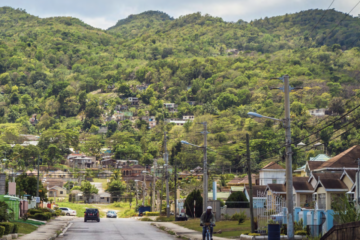After almost a year of political ambiguity and public demonstrations, Bolivia has a new president. Luis Arce swept to victory with a nearly 20 percentage point lead over his nearest opponent. As Evo Morales’s successor and the candidate of the Movement for Socialism (MAS), Arce will have to balance his political commitment to socialism with tackling a looming debt crisis and governing a deeply divided country. Bolivia’s recent election should be taken as an affirmation that a left-wing path remains popular among its population—it was the 2019 election, not the one held in October of this year, that was the aberration. This election will also come with clear regional implications, strengthening the position of other left-of-centre movements in Latin America, notably Argentina’s Peronist government and the protest movements in Chile.
A Controversial Election
Bolivia’s 2019 general election captured international headlines when long-ruling president Evo Morales won a slim majority amid electoral controversy. Latin America’s first ethnically-indigenous president was running for his fourth consecutive electoral term, despite a two-term constitutional limit. Morales’s first term was not counted because it took place prior to the creation of the 2009 Constitution, and he narrowly failed to win popular support for a constitutional exception allowing him to run for a fourth term; controversially, though, he got approval from a loyal Supreme Court to run.
After his marginal victory, protests erupted in Bolivia over rumours that voter fraud was used to avoid a run-off election that many thought Morales would lose. The Organization of American States (OAS) audited the election, stating in their report that the election had contained irregularities—including a 23 hour pause to the vote count—and was determined fraudulent. This audit was itself controversial. An independent report, using information obtained by the New York Times, argued that the statistical methods used by the OAS were flawed. “We took a hard look at the O.A.S.’s statistical evidence and found problems with their methods,” says Francisco Rodríguez, an academic at Tulane University who co-authored the report, “Once we correct those problems, the O.A.S.’s results go away, leaving no statistical evidence of fraud.”
A Year in the Political Wilderness
Morales agreed to hold a second election but later resigned the presidency and entered exile in Argentina after Bolivia’s Army Chief requested that he step down to “preserve public order”. His vice president and the leaders of the Senate and House of Representatives also resigned. Jeanine Áñez, the second vice president of the Senate, declared herself interim president. Morales and his supporters criticised this as a military coup. Regardless of whether this characterization is correct, the Áñez government overstepped its interim role and drew criticisms from international human rights groups.
The Bolivian Constitution requires that any interim president hold an election within 90 days. Citing the growing COVID-19 crisis, Áñez pushed back the date of the presidential election on two occasions, delaying the election until almost a full year since claiming the presidency. Critics claimed this was an attempt to shore up support for Áñez’s own presidential run. Despite assurances that she would not participate in the election, the interim president eventually announced her candidacy. She pulled out in September after trailing in the polls at fourth place
During its year-long tenure, the Áñez administration drew criticism for implementing radical policy changes despite lacking a democratic mandate. Áñez publicly described indigenous cultures as “satanic”, removed indigenous activists from cabinet positions, and declared Bolivia a Catholic country, reviving a number of state-sanctioned Catholic rituals. In the first month of the Áñez presidency, state security forces shot and killed 23 peaceful protesters and injured over 230. The Áñez administration also detained over 100 MAS politicians and publicly referred to human rights activists as “Indians”, “animals”, and “rapists”.
What Happens Now?
Bolivia now has a new government. The former MAS finance minister, Luis Arce, won enough votes over his nearest rivals to avoid the run-off often prescribed by the Bolivian Constitution. His victory signals a return to power for Morales’s allies and the political left. Even if the 2019 election was legitimate, the margin of victory for MAS in 2020 is clearer by a significant margin. There are a few ways this shift can be interpreted.
The first is that pro-indigenous, socialist policies continue to be widely popular in Bolivia, and that the electoral misfortunes of Morales in 2019 were an indication that the Bolivian public were concerned about the former president’s attempts to subvert constitutional restrictions. This reading is certainly consistent with his failure to win the constitutional referendum that would have allowed him to run for a fourth term. It’s worth remembering that Morales’ administration achieved sweeping policy changes which enfranchised Bolivia’s indigenous groups. The 2009 Constitution granted equal legal standing to collective indigenous citizenship. The Morales cabinet was the first to include indigenous Bolivians, who held 14 out of 16 cabinet positions. The indigenous base in Bolivia that remains fiercely loyal to MAS.
A second reading is that the actions of the Áñez presidency discredited a conservatism that could have otherwise gained popularity. The undemocratic nature of the year-long administration may have overshadowed Morales’s attempts to avoid constitutional term limits, and human rights abuses evoked memories of the country’s military dictatorships in the 1980s, especially given the intervention of the military in Morales’s departure. The truth likely lies somewhere in the middle. Pro-indigenous, socialist policies remain popular with the MAS’s base, and those who might have voted for a conservative presidential candidate were disillusioned by the Áñez presidency.
Overall, this electoral victory will be a boon for left-wing movements in Latin America. The Peronist Fernández administration in Argentina is known to be close allies of Morales and MAS; they are no longer the only left-wing government in South America. Bolivia will likely rekindle its relationships with Cuba and Venezuela, which were severed over the course of the past year. This shift to the left in Bolivia also coincides with victories for grassroots protests in Chile, which secured a referendum on changes to the Pinochet-era constitution.


